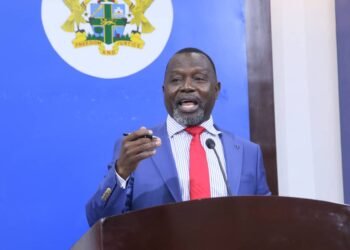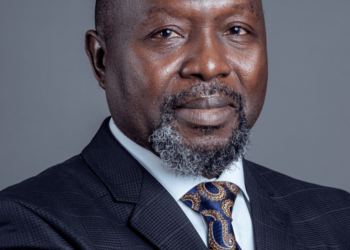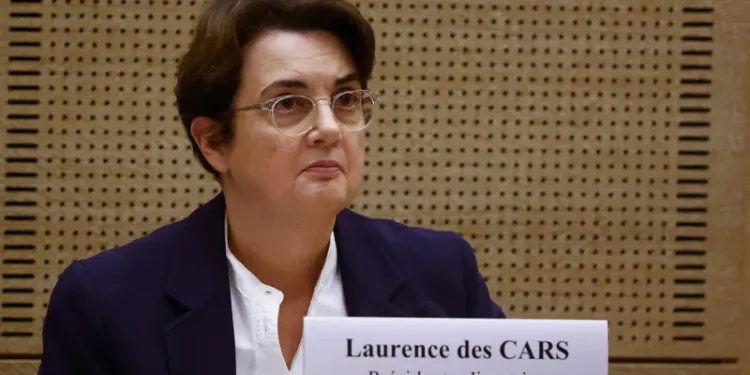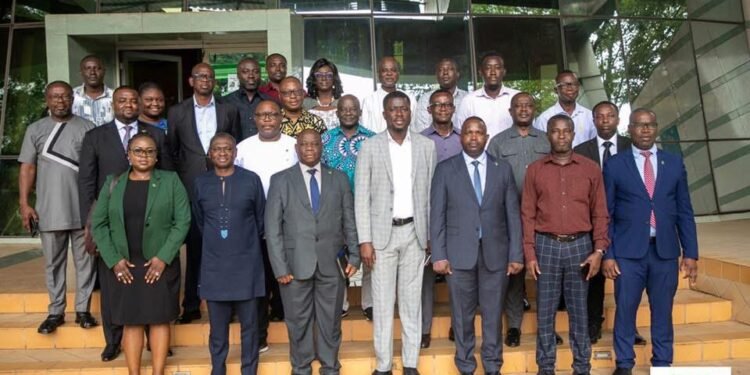President John Dramani Mahama has launched the 2025 National Cyber Security Awareness Month at Burma Camp, issuing a strong call for collective vigilance and unity in safeguarding Ghana’s digital space.
The event, held under the theme “Building a Safe, Informed, and Accountable Digital Space,” emphasized both the immense opportunities and the growing risks of digitalization in Ghana’s national development.
“This occasion is not merely an action that we must take. The decisions we make now will decide whether technology becomes a means of empowerment and growth, or a source of vulnerability and division”.
President John Dramani Mahama
President Mahama pointed out that digitalization has already transformed lives across Ghana—from farmers using mobile phones to access weather information, to students participating in online learning, to businesses expanding their markets and government institutions improving efficiency.
“Digitalization is not just an abstract idea—it is real. It influences how we live and work. It opens new opportunities for innovation, efficiency, and inclusion”.
President John Dramani Mahama
However, the President cautioned that the same tools empowering Ghanaians are also being exploited in harmful ways. He warned of threats ranging from identity theft to manipulation of information and the disruption of critical infrastructure.
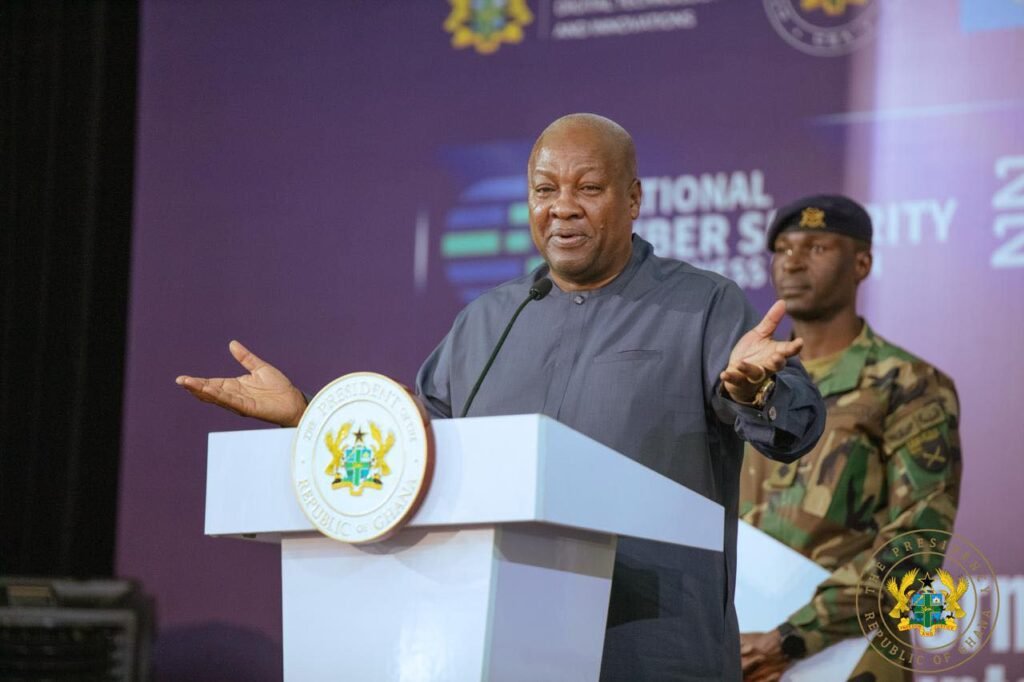
“Cyber-threats today are more complex and more dangerous than ever before. They are borderless, they are invisible until it’s too late, and they evolve every day,” he stated. Citing global financial incidents that have caused losses exceeding $5 billion, President Mahama underscored the urgency of preparing Ghana to face this reality.
Flagship Initiatives Boosting Digital Innovation
As part of his government’s response, the President outlined four flagship initiatives aimed at positioning Ghana as a continental leader in cybersecurity and digital innovation.
The first, the One Million Coders Program, was launched in April this year to equip one million young Ghanaians with skills in coding, data analytics, cybersecurity, and software engineering. Pilot projects are already running in Greater Accra, Ashanti, Bono, and the Upper East Regions.
The second, the Digital Jobs Initiative, seeks to create sustainable employment through public-private partnerships. The initiative will establish regional digital centers for business process outsourcing and ICT parks, promoting entrepreneurship in artificial intelligence, cybersecurity, and related fields. “A key project under this initiative is the Reach of Excellence,” President Mahama explained.
The third is the creation of a FinTech Growth Fund, with $50 million earmarked to support Ghanaian-owned startups in developing local solutions and expanding them internationally.
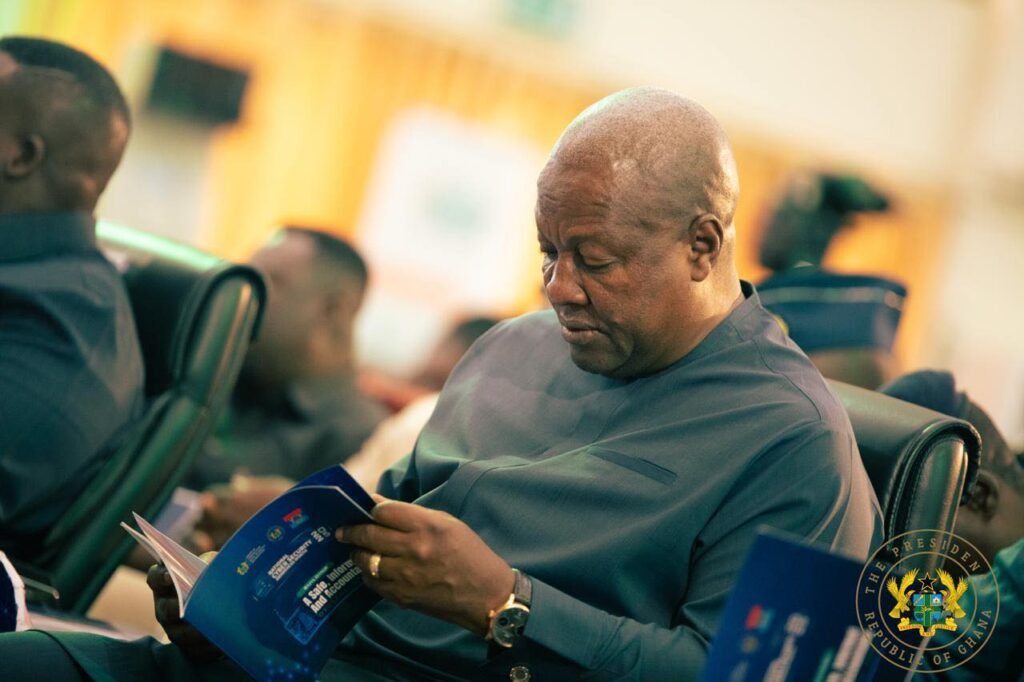
Beyond its economic impact, the President described this initiative as critical for “digital resilience,” especially as the country pursues a 24-hour economy that demands round-the-clock secure systems.
The fourth initiative involves strengthening institutions. In line with the Cybersecurity Act 2020 (Act 1038), President Mahama announced the inauguration of a joint cybersecurity project in collaboration with the Cyber Security Authority to ensure coordination, coherence, and proactive strategies in combating cybercrime.
“Cybersecurity must not be fragmented. It demands unity of purpose, a clear strategy, and disciplined education,” he emphasized. The President also stressed that Ghana cannot address cyber threats in isolation, noting that cybercrime operates without borders.
Commitment to International Cooperation
He reaffirmed Ghana’s commitment to international cooperation through the Malabo and Budapest Conventions and disclosed plans to ratify and sign the United Nations Convention on Cybercrime this October.
“This treaty equips us with new tools to investigate attacks, prosecute cybercriminals, and protect critical information infrastructure,” President Mahama said, adding that Ghana has played a leading role in pushing for human rights protections within the treaty.
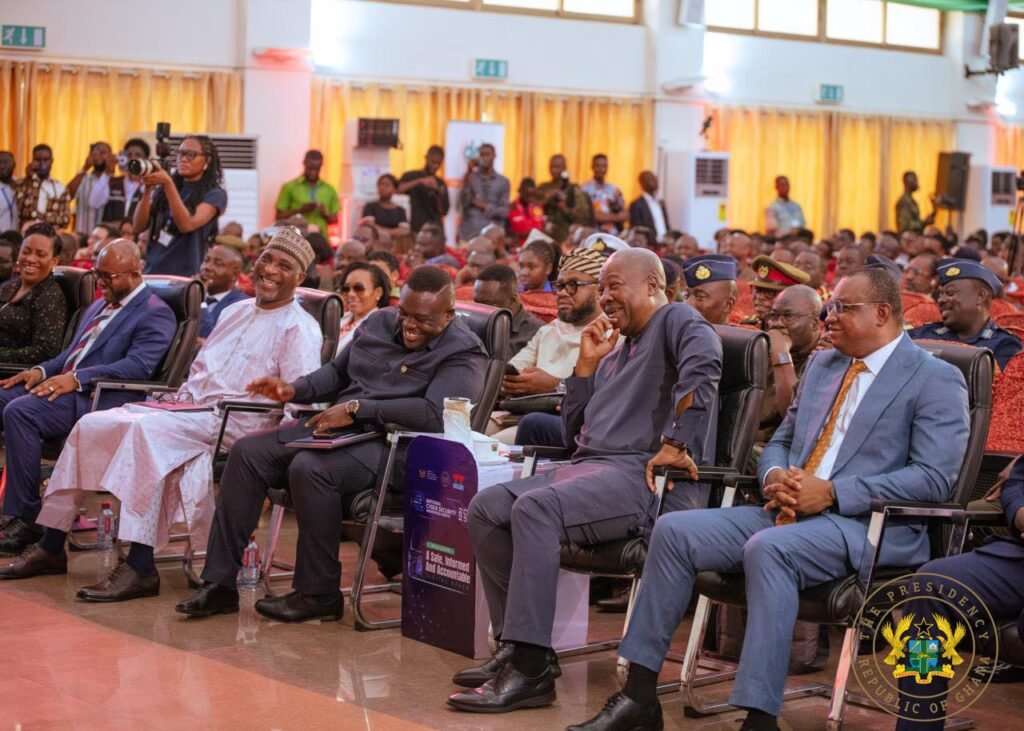
The President further highlighted Ghana’s adoption of the Palmol Process Code of Practice, aimed at regulating the use of commercial cyber intrusion capabilities, and announced stricter licensing systems, certification of professionals, and approval of cybersecurity products to guarantee transparency and accountability.
Yet President Mahama made it clear that institutions and policies alone are not enough. He called on citizens to take personal responsibility for staying safe online.
“Our citizens are our first line of defense. This Awareness Month is therefore about our people. It is about ensuring every Ghanaian, from the child at school to the trader in the market, from the banker in the city to the farmer in the village, understands the risks of the digital world and knows how to stay safe”.
President John Dramani Mahama
The President stressed that awareness is the foundation of cybersecurity. “We are demystifying cybersecurity. We are demonstrating to our people that a simple click can have consequences and that vigilance online is as important as vigilance as you walk on our streets,” he cautioned.
President Mahama urged all stakeholders—government, private sector, civil society, and citizens—to play their roles in securing Ghana’s digital space.
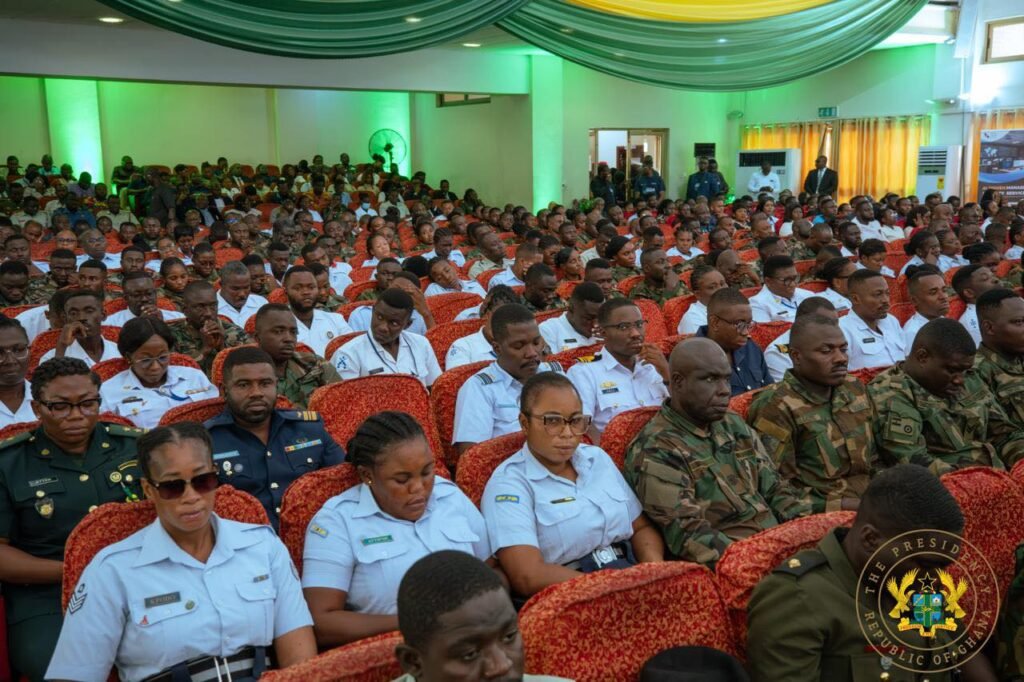
“Our duty as governments is to provide clear policies, strong institutions, and enforcement. The private sector’s duty must be to invest in cyber resilience and protect consumers’ data.
“Civil society must advocate responsibly, educating and holding governments and institutions accountable. And for our citizens, they must stay informed and alert on every occasion”.
President John Dramani Mahama
Concluding his remarks, the President expressed optimism that Ghana could lead the continent in secure digital transactions if citizens and institutions act wisely and inclusively. “The risks are real, but the opportunities are greater”, he remarked.
The President stressed that Ghana can become a continental leader in secure digital transactions that empower its youth and secure its cyberspace for its citizens. This is the foundation of the Reset Ghana Agenda: innovation with integrity and inclusion,” he declared before officially launching the month-long campaign.
READ ALSO: Ghana’s Inflation Crashes to 9.4% in September— Lowest in 4 Years






